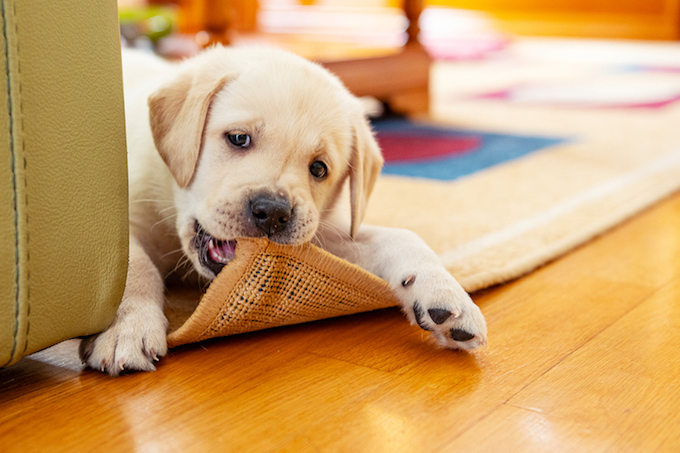Pediatric behavior problems in dogs include chewing, jumping, play-biting, and destructive behavior. The condition affects young puppies.
The condition should be addressed early on. Unfortunately, the condition can be seen as playful or normal and not treated. The condition can be problematic around young children.
Additionally, working dogs develop the condition the most.
If you see the signs of the condition in your dog, then get to a veterinarian for a proper diagnosis and treatment.
Here’s what you should know about the symptoms, causes, and treatments for the condition.
Symptoms of Pediatric Behavior Problems in Dogs
The condition produces a range of symptoms. For instance, some of the most common symptoms include:
- Play-biting
- Jumping on people
- Jumping on countertops
- Leash pulling
- Destructive chewing
- Barking excessively
- Aggressive behavior
- Excessive digging
Causes of Pediatric Behavior Problems in Dogs

The cause of the condition can be inherited. For example, working dogs develop the condition a lot.
Additionally, the these factors can contribute to the condition:
- Environment (not enough space to play and exercise)
- Lack of supervision
- Inadequate nutrition
- Being left alone
- Food left on countertops
- Being teased
- Rough play
- Inappropriate toys
Treatments for the Condition in Dogs
Firstly, your vet will ask about your dog’s symptoms. Specifically, your vet will ask about any changes to your dog’s home environment. Additionally, your vet will ask about any breed-specific behavior problems.
Generally, treatment often begins with extended exercise. This is to help keep your pup physically and mentally stimulated. Specifically, fetch games can help with this condition.
Additionally, your vet will suggest rotating your pup’s toys. This is to keep them stimulated. Training tips to discourage destructive behavior will also be discussed. Your vet can help recommend a qualified local trainer if needed.
Finally, in some cases medicine will be suggested. Although talk to your vet about further training options first. Also, if your vet prescribes your dog any medicine, make sure to stick to the correct dose and frequency instructions. Also, complete the full course of medicine.
Have you ever cared for a dog who suffered from this condition? How did your vet help your dog recover? Let us know in the comments section below.









